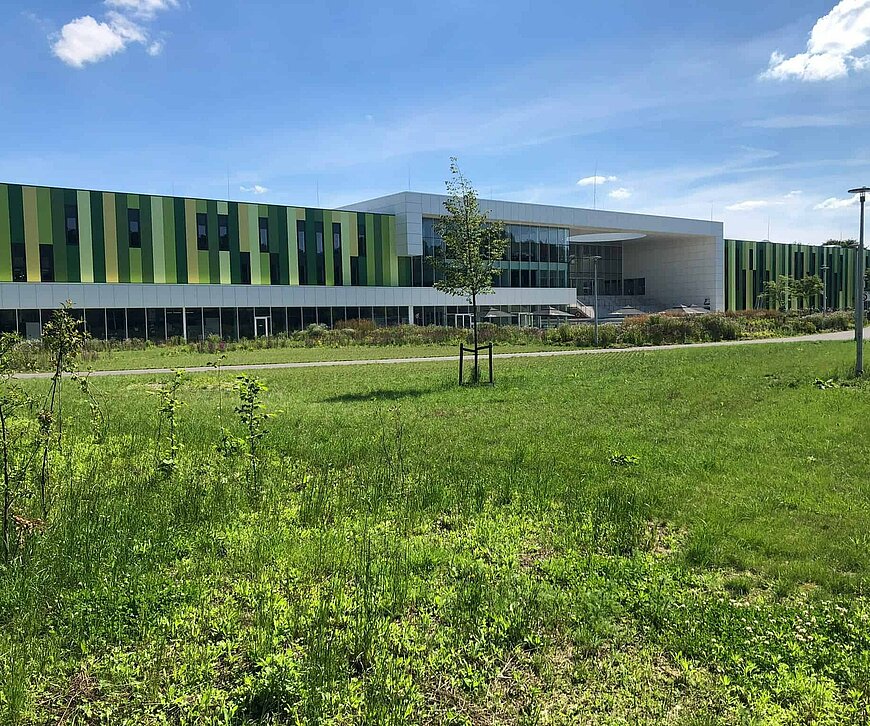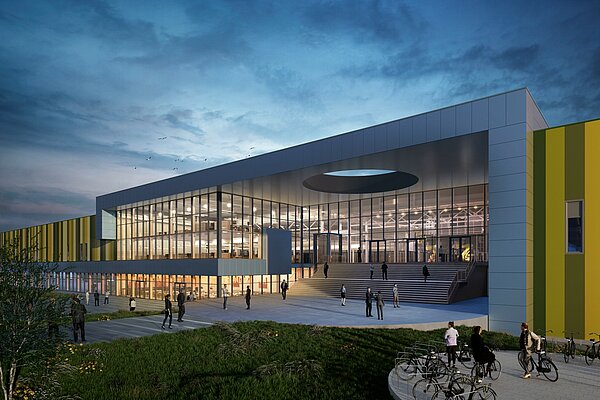At BIC you can discover how robotization is boosting the manufacturing industry

The European manufacturing industry is on the move. From fully automated robots to cobots that stand alongside workers on the floor: Robotics is increasingly playing a role in improving and optimizing the high-tech industry. At Brainport Industries Campus (BIC), too, plenty of attention is paid to this through knowledge sharing and various applications.
Robotization is increasingly a recurring topic and is already playing a major role in today’s society. You often find robots and other automated processes in hospitals, for example, where operating robots offer surgeons a helping hand, and in education, where social robots can assist teachers. At the same time, industrial robots have also long been an integral part of modern industry. They often take over repetitive work, such as welding, gluing, and sorting, from workers. The application of robotics also brings additional profits, such as better quality, less waste, and a more sustainable production process.
Geopolitical conditions and a shortage of technical personnel are two significant challenges that are expected to further accelerate the deployment of robotization in the coming years. The perfect timing, then, for the information meetings organized by Yaskawa.

BIC as an ideal business location
BIC is an attractive location for an innovative robotization company like Yaskawa. “It is the heart of the high-tech manufacturing industry,” says Van Driel. “The location is ideal because the connection to Belgium and Luxembourg is quickly established. In addition, the ecosystem, which includes a wide variety of companies and educational institutions, really appeals to us. We continuously seek cooperation. It ensures that we keep coming up with new solutions that help the manufacturing industry move forward.”
“We need to keep the European manufacturing industry competitive with the rest of the world”
Erik van Driel, board member of Yaskawa Benelux.
An innovative welding robot
Yaskawa is working on various applications related to robotization at BIC. For example, participants at the first meeting were introduced to a special welding robot, which was set up in Yaskawa’s showroom, according to Marketing Manager Liesbeth Janssen. “It is currently difficult to get people to do the welding work, while robots are always available. Moreover, the welding robot works very accurately, as can be seen in our demo room. Where people get tired over time, a robot can keep going endlessly. That ensures that welds can be laid absolutely perfectly. Even on a Friday afternoon,” Janssen says with a laugh. Moreover, the robot can do even more; it can be placed on a track, similar to a train track. “This has a long reach and can weld a long seam very accurately,” Janssen says.
Bin-picking
Also in the Factory of the Future Experience Center, robotics is being put to full practical use. In doing so, Yaskawa seeks the connection with, among others, students from Fontys University of Applied Sciences. The experience center features a special 3D bin-picking robot, which can recognize, pick up and sort unsorted parts from a bin. It is a technique that combines robotics, software, camera and image processing. The benefit: “Linking intelligent vision systems and robotics gives robots many more application possibilities, even in more “chaotic” environments,” Janssen explains.

Sustainability
It is clear, then, that robots make for an efficient manufacturing industry. But they are also increasingly being used to improve the sustainability of production processes. Two years ago, Yaskawa adopted the sustainability goals established by the UN, known as the Sustainable Development Goals (SDGs). BIC also signed the convention.
“We apply the ‘walk your talk’ principle here. That means that we actually start working with the goals.”
Erik van Driel, board member of Yaskawa Benelux.
Securing the food supply is one of the goals of being given hands and feet within Yaskawa. Visser Horti Systems, a company that makes machines and complete production lines for horticultural nurseries, is a customer of Yaskawa and deploys Yaskawa’s machines to automate sowing processes, among other things. “Through advanced automation, we ensure that the available natural resources, such as seeds, are optimally utilized,” Van Driel explains.
Also, innovative, automated systems ensure energy savings. Van Driel: “Take our U1000 frequency converter, for example, which feeds energy back into the electricity grid. This can be used in hoisting cranes. When the load is lifted you need energy. But when the load goes down in the crane, the motors start working as dynamos; they generate energy. This energy is fed back to the grid using variable-speed drives. So this is how you deal more efficiently with the energy that is generated.”
A competitive manufacturing industry
In short: with all its advantages, robotization will eventually contribute greatly to a competitive European manufacturing industry, Van Driel is convinced. “In the coming years, we must all ensure that Europe remains at the forefront of innovation, and industrial automation is indispensable in this. Let’s continue to share as much knowledge with each other in this area as possible to make that happen."
